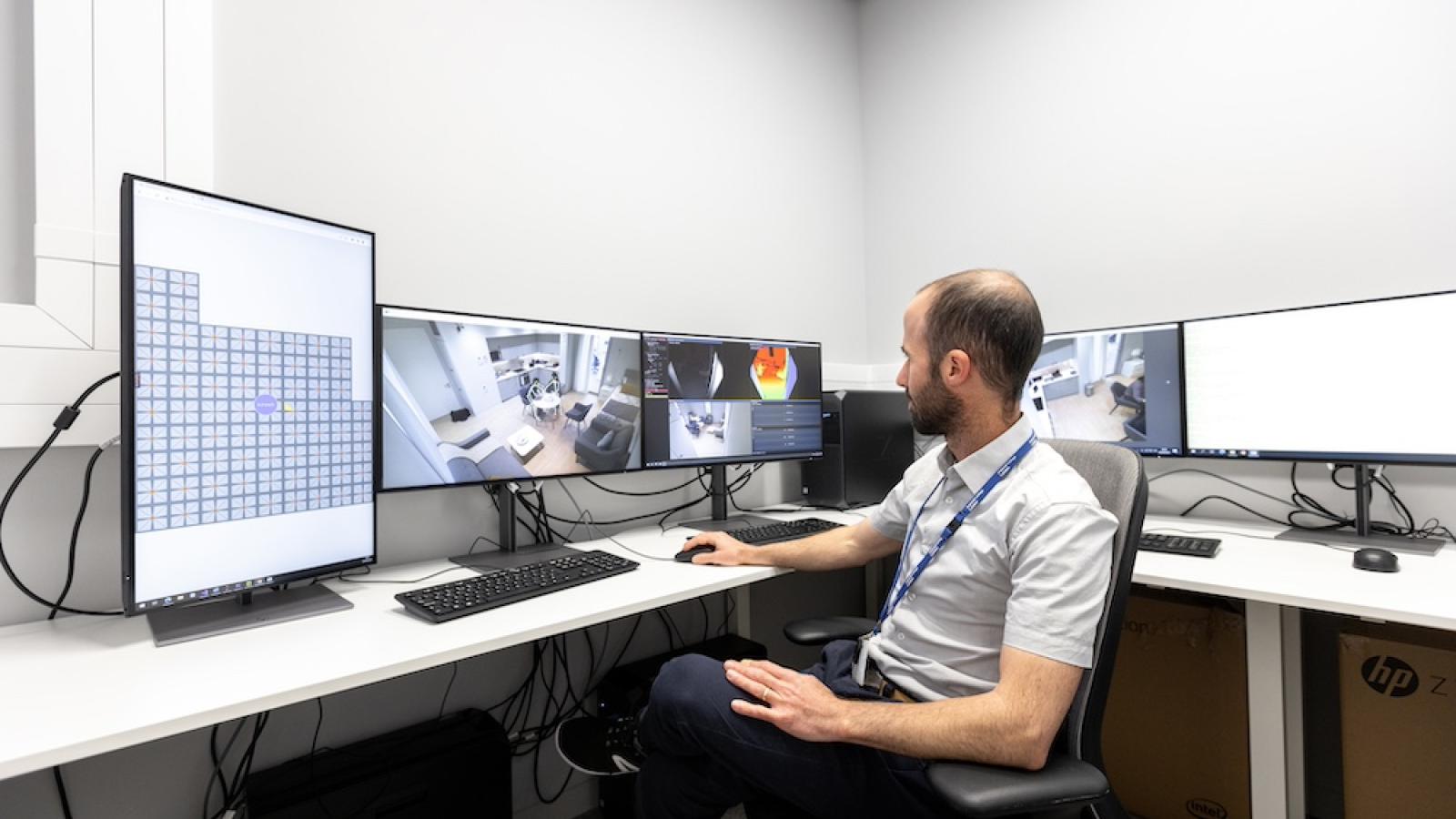Key details
Harnessing digital biomarkers for Parkinson's
Digital biomarkers based on continuous measurement of motor behaviour and brain activity can provide cost-effective, objective, and robust measures for tracking the progression of neurodegenerative disease, changes in care needs, and the effect of interventions. Moreover, those can be used as robust outcome measurements for clinical trials, making those shorter, cheaper and conclusive.
The Haar Lab is developing motor digital biomarkers which can account for daily life activities in the real-world and fluctuations in posture, mobility, frailty, and movement structure. This would enable treatment optimisation, and identification of the need for greater support, and would provide robust outcome measures, based on home sensing technology, to assess the effectiveness of new disease-modifying interventions.
The team are also working to improve understanding of the neural mechanisms underlying movement and movement disorders in order to improve treatment delivery for Parkinson’s and enable new therapies. Their focus is on mapping the effect of Deep Brain Stimulation (delivered clinically via implanted electrodes or experimentally via non-invasive methods) on brain activity and motor function, to develop neural and motor digital biomarkers for personalised and precision therapy.
Latest news
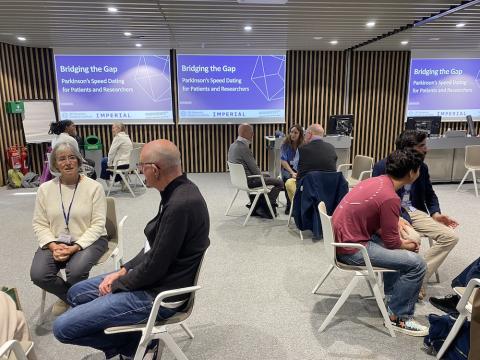
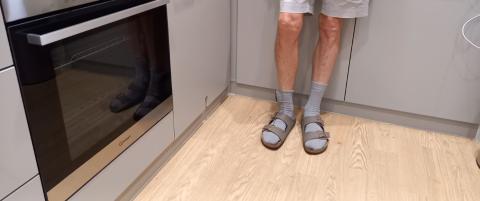
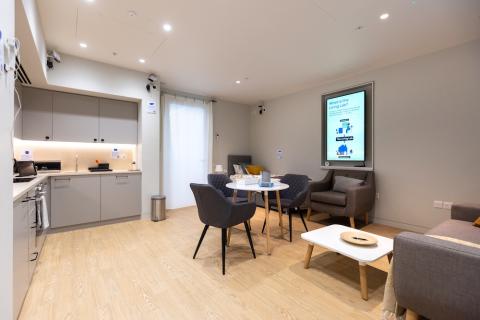
Dr Shlomi Haar
Dr Shlomi Haar is an Emerging Leader at the UK DRI Care Research & Technology. Find out more about his career and expertise on his profile page.

Research summary
Tracking the movements of individuals in the Living Lab, UK DRI Centre for Care Research & Technology.
Brain and Movement
Most of our brain is involved in the planning and execution of body movement, and motor function and related behaviour are informative measures in most neurological conditions. Motor decline showed to have a higher attributable risk for dementia than cognitive decline. Unlike cognitive decline, motor decline can be measured objectively, passively, and continuously through sensors. Hence, accurate tracking of motor decline in dementia can provide novel digital biomarkers for improving diagnosis, tracking disease progression, and identifying care needs, which may help improve independence and slow functional decline.
This UK DRI programme, led by Dr Haar, studies the neurobehavioural mechanisms of human movement in health and disease. This interdisciplinary research group, between engineering and neuroscience, deploys novel digital technologies for neural and movement recordings, pervasive AI, and state-of-the-art data science and machine learning to unleash the potential of Real-World Motor Neuroscience to study real-world neurobehaviour of neurodegenerative patients and develop novel digital biomarkers that will enable improved care, robust outcome measure for clinical trials in new disease-modifying interventions and close loop personalised interventions.
The research programme focuses on improving our understanding of the neural network of human motor control and the effects of neurodegeneration on it, predominantly in Parkinson’s disease. The programme aims to improve disease progression and symptom fluctuation tracking for closed-loop personalized interventions. Of specific interest is a better understanding of the neurobehavioural mechanisms of Deep Brain Stimulation (DBS) for Parkinson's disease. This would enable better treatment delivery and leverage smart sensing and AI toward personalized medicine using adaptive closed-loop therapies.
Main objectives and research goals:
The neuroscientific aim of the programme is to improve our understanding of the neural mechanisms underlying movement and movement decline, and the translational aim is to utilise this knowledge to improve treatment delivery and enable new therapies. Ultimately, the goal is to close the loop, using smart sensing and AI to guide personalised and tailored therapies.
Specific technical expertise
Deep brain stimulation (DBS), Electroencephalogram (EEG), Electromyography (EMG), fMRI, Depth cameras, UWB Radar, Wearable sensors, Non-invasive brain stimulation, Machine Learning (ML)
Preprints
- Graef, Pascual Valdunciel, Farina, Vaidyanathan, Tai, and Haar. Propagation of Beta bursts from the motor cortex to the motor units of multiple upper-limb muscles [preprint doi: 10.1101/2025.05.22.655541]
- Calvo Peiro, Haugland, Kutuzova, Graef, Bocum, Tai, Borovykh, and Haar. Deep Learning-Driven EEG Analysis for Personalized Deep Brain Stimulation Programming in Parkinson's Disease [preprint doi: 10.1101/2025.02.11.25321886]
- Kutuzova, Graef, Lonergan, Bocum, Tai, and Haar. Deep brain stimulation effects on cortical activity across frequency bands and contact locations [preprint doi: 10.1101/2025.07.18.25331716]
Key publications
Vacancies
Lab members
- Nathan Steadman (PhD Student)
- Federico Nardi (PhD Student)
- Cosima Graef ( PhD Student)
- Niro Yogendran (PhD Student)
- Alena Kutuzova (PhD Student)
- Assaf Touboul (PhD Student)
- Nicolas Calvo-Peiro (PhD Student)
- Jenna Yun (Research Technician)
- Gaia Frigerio (Research Technician)
- Sean Carr (Research Assistant)
Collaborators
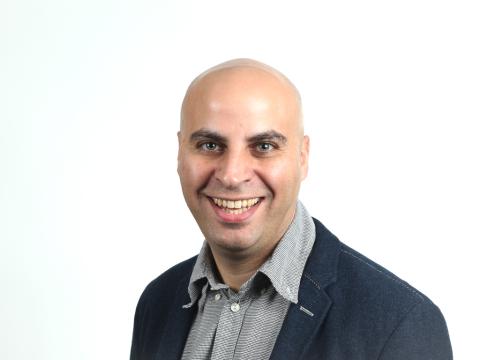

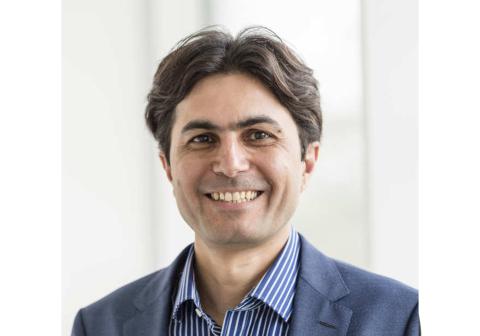









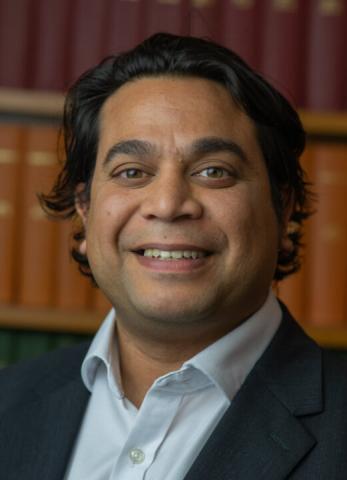
Lab funders
Thank you to all those who fund the Haar Lab!



